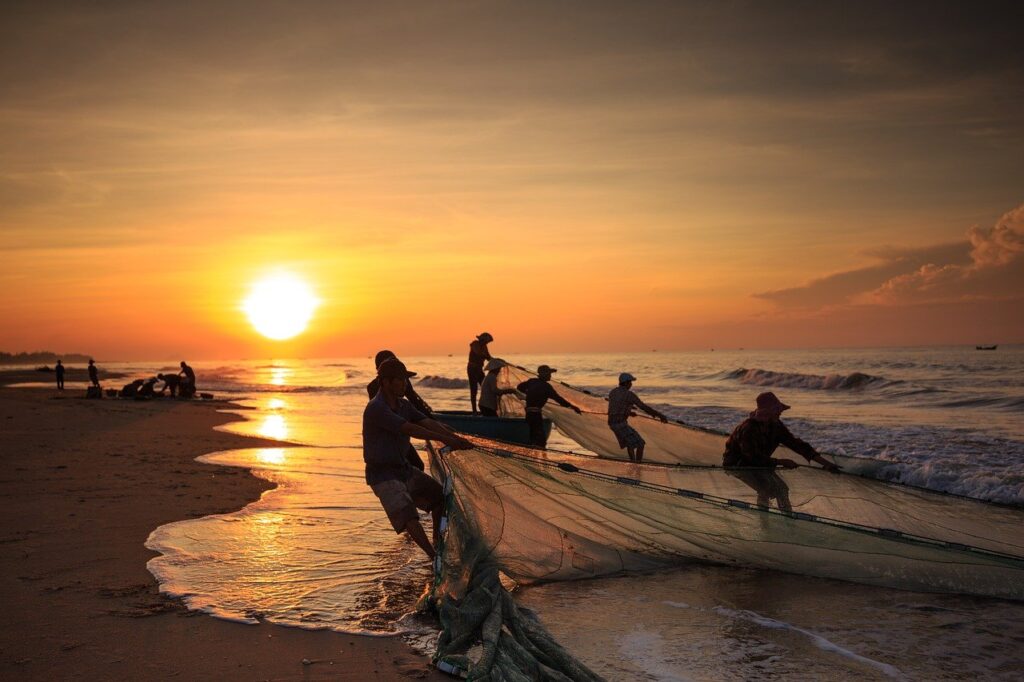These days an informal pact was closed around the distribution of the European Maritime Fund for Fisheries and Aquaculture (FEMPA) for the period 2021-2027. There are still some steps within the institutions of the European Union. They will be available from January and will aim to guarantee generational renewal. And give prominence to inshore fishing and aquaculture and shellfish. European Fisheries Fund, towards a new stage that reinforces economic activity in our coastal communities.
Objectives of the New European Fisheries Fund
- Simplify administrative procedures: for access to funds. Because, it is one of the 5 structural funds. And that implies that its management is complex.
- Aid for the scrapping of boats that have been left in disuse.
- Guarantee food safety and traceability of fishery products sold on the common market.
- Strengthen fisheries surveillance and control: through data collection and efficient control. “With the purchase, installation and management of electronic control systems” says the EU. Here Vigo plays a crucial role, with the European Fisheries Control Agency (EFCA).
- Strengthen international ocean governance: through modern ships and support for the sea-industry chain.
The local fishing industry is key in the European fishing funds FEMP
Boats under 24 meters in length promise to be a crucial target. The new European Fisheries Fund will be very focused on supporting the local. The coastal communities dedicated to fishing activities will be strengthened with your aid.
The idea is to develop the coastal economy around the fishing industry. Decreasing the dependence on products from third countries and international agreements, which the European market has.
Specific Measures for Small Boats
Reduce the environmental footprint: with aid for engine change in boats and the reduction of carbon dioxide emissions. In search of energy efficiency.
Guarantee generational change: with aid for young sailors for the purchase of first-time boats.
Improve the living conditions on board the boats: as well as the safety of the fishermen. Something that has become clear in these months, which is essential.
The EU will distribute in the period 2021-2027, a total of 6,108 million euros among the European fishing fleets. Spain and, specifically Galicia, will be the great beneficiary. Far behind are the other major fleets in the EU:
- France: 567 million euros
- Italy: 518 million euros
- Poland: 512 million euros
- Portugal: 378 million euros
- Greece: 374 million euros
30 million less than the initial FEMP
The European employers’ association, Europêche, believes that the economic crisis derived from Covid-19 and the tensions with fishing quotas due to Brexit, have created an exceptionally delicate situation for the fishing industry. Let us remember the months fishing on the high seas without rest or return home for our sailors. And the difficulties for downloads. The entity expected a larger budget. And he believes the agreement is weak on two issues that he considers vital: less money than agreed and ships in ruins.

Reduction of 5% of the Initial Budget for the New FEMP
In summer, 32 million euros were lowered from the preset total due to pressure from representatives of all member countries. With this, it was intended to make some cuts to help alleviate the economic damage generated by the Covid-19 crisis.
The inability to finance the renewal of the fleet is a stumbling block in the pact on the new European Fisheries Fund. There are even ships over 40 years old, in operation.
Which places the most important and powerful fishing fleet in Europe, in a situation of insecurity for our fishermen. And it forces her to go out of her way to compensate for the wear and tear on her boats and remain competitive.
Help for Emergency Situations
In return, the new model for the distribution of the European Fisheries Fund will have, as of 2021, extra protection against unexpected situations that prevent the normal development of fishing activities.
Temporary cessation of fishing activity: financing will continue up to a maximum of 12 months per boat or fisherman. Includes: permanent cessation and dismantling.
Exceptional crises: Europe has learned from the Coronavirus experience. There will be storage aids. And compensation to operators for losses in their income or for having extra costs derived from the crisis.
Fishing Abroad: China in the Shoe
But the aid has, nevertheless, a jab with respect to international agreements. The downside is the lack of protection for our fishermen against any loss in international relations. The fisheries agreements with third countries that are not renewed, will not be compensated by the new European Fisheries Fund.
The fishing industry depends on good relations with the countries where our vessels operate. If Great Britain, with the Brexit negotiation, is being a nightmare full of uncertainties. Africa was before. And it could be again.
African fishing grounds feed our industry beyond the national market. Species such as octopus, hake or squid… They are caught, frozen or transformed, to be exported abroad. Being welcomed with great enthusiasm by the American market, among others.
A Spiral of Dependency
The benefits of this industrial chain are enormous. But very risky. Since nothing depends on the fleet. It is our government that must convince Europe to award us fishing quotas.
And it is Europe that must negotiate with the countries that own the fishing grounds. And put the money (in concept of aid to local development) and the extra benefits that each signed agreement supposes. That means that the future depends on a lot of people to convince.
